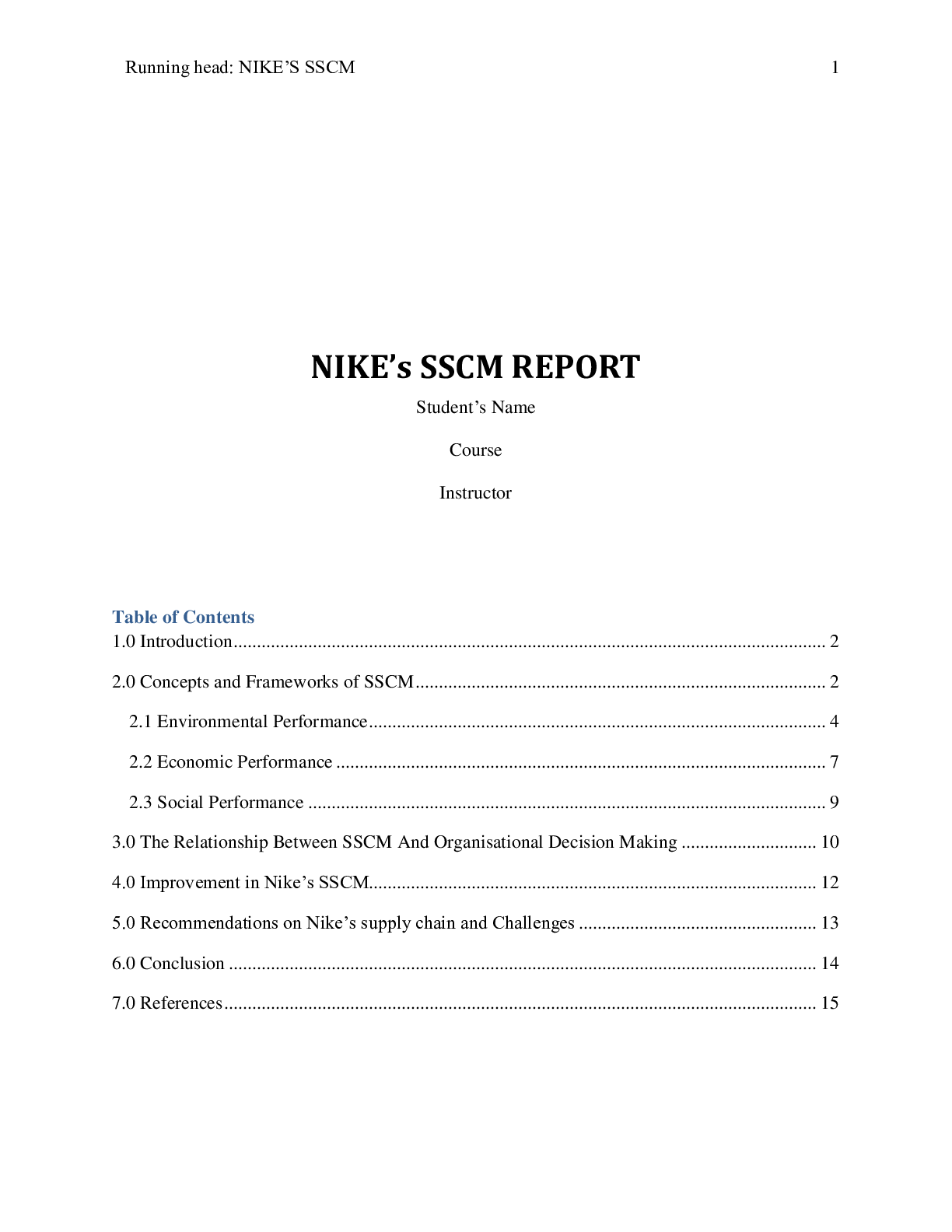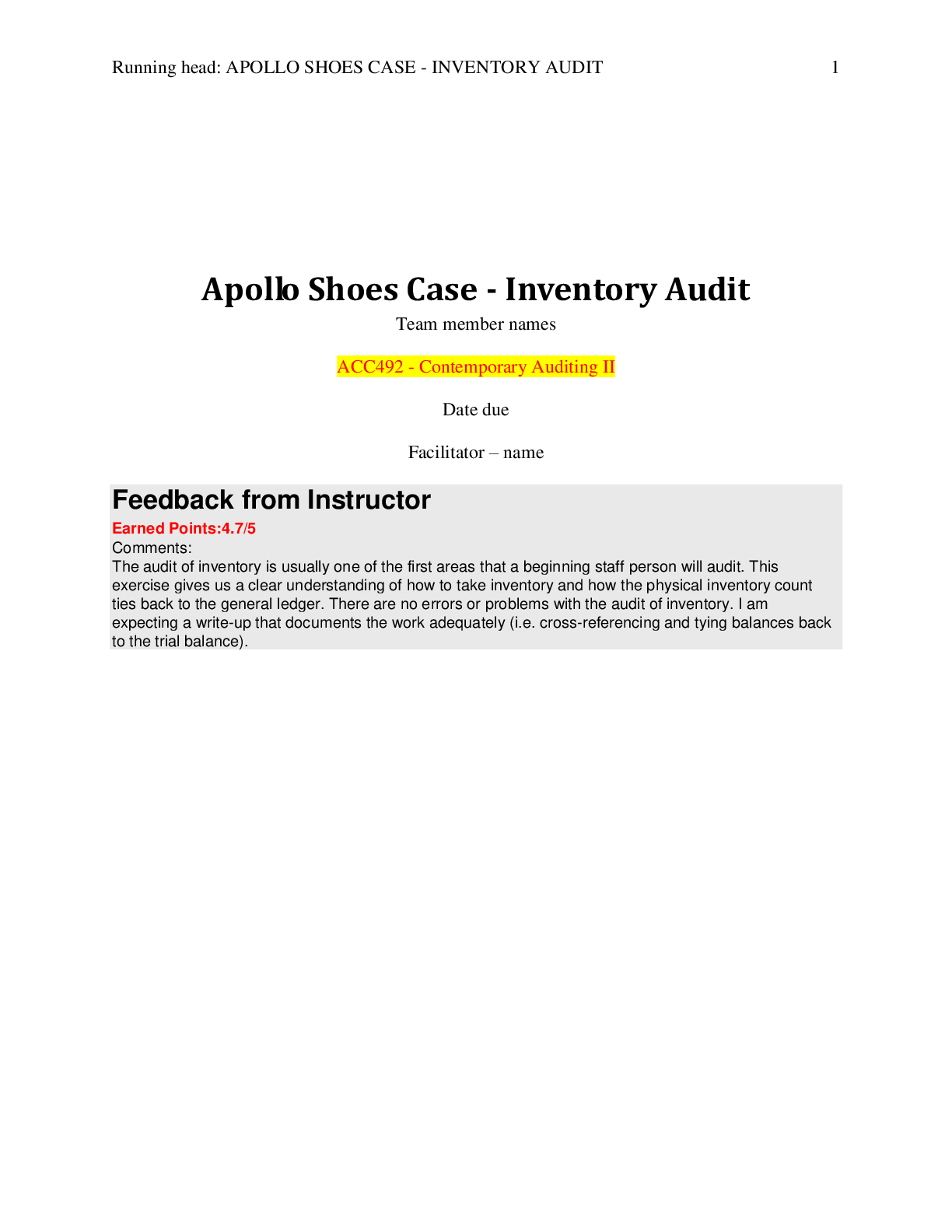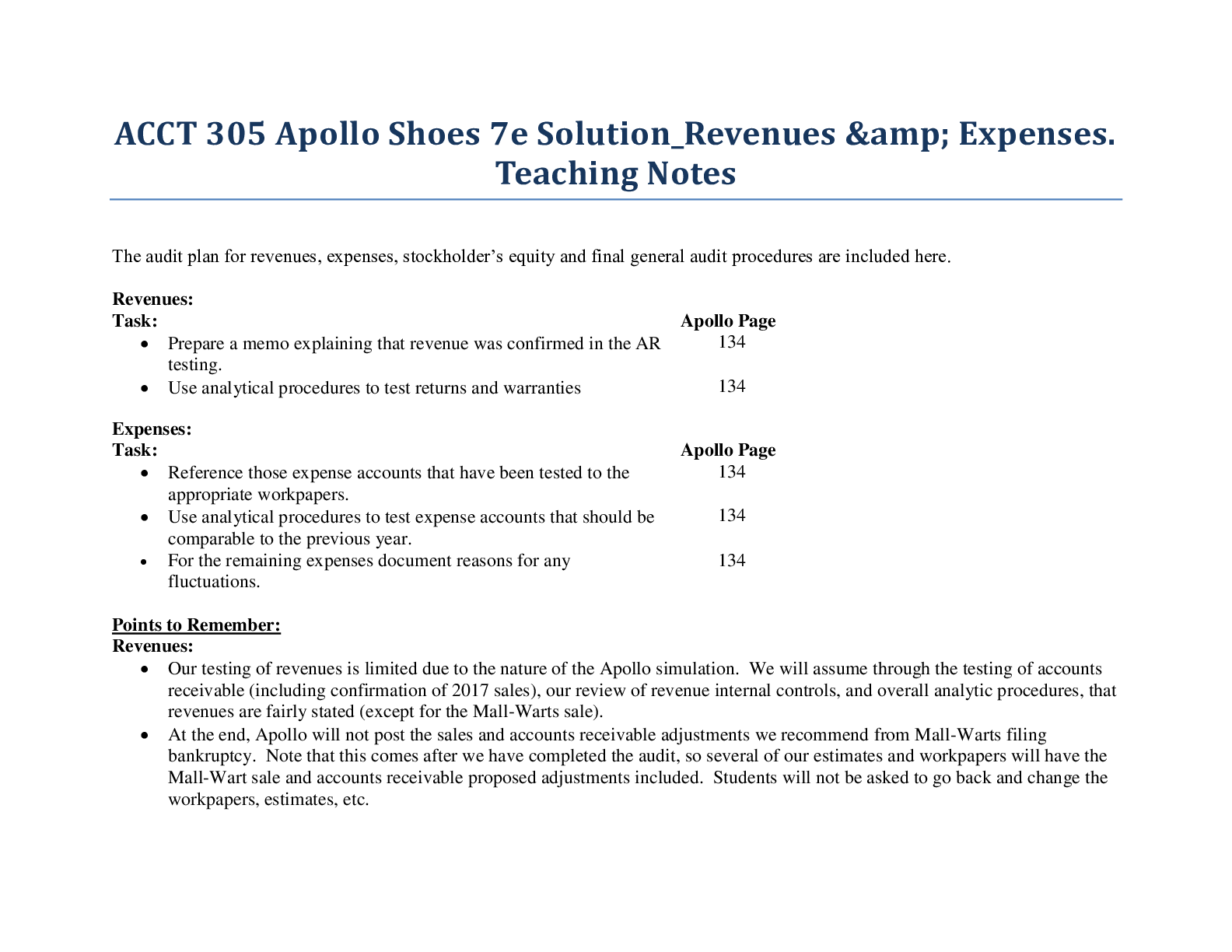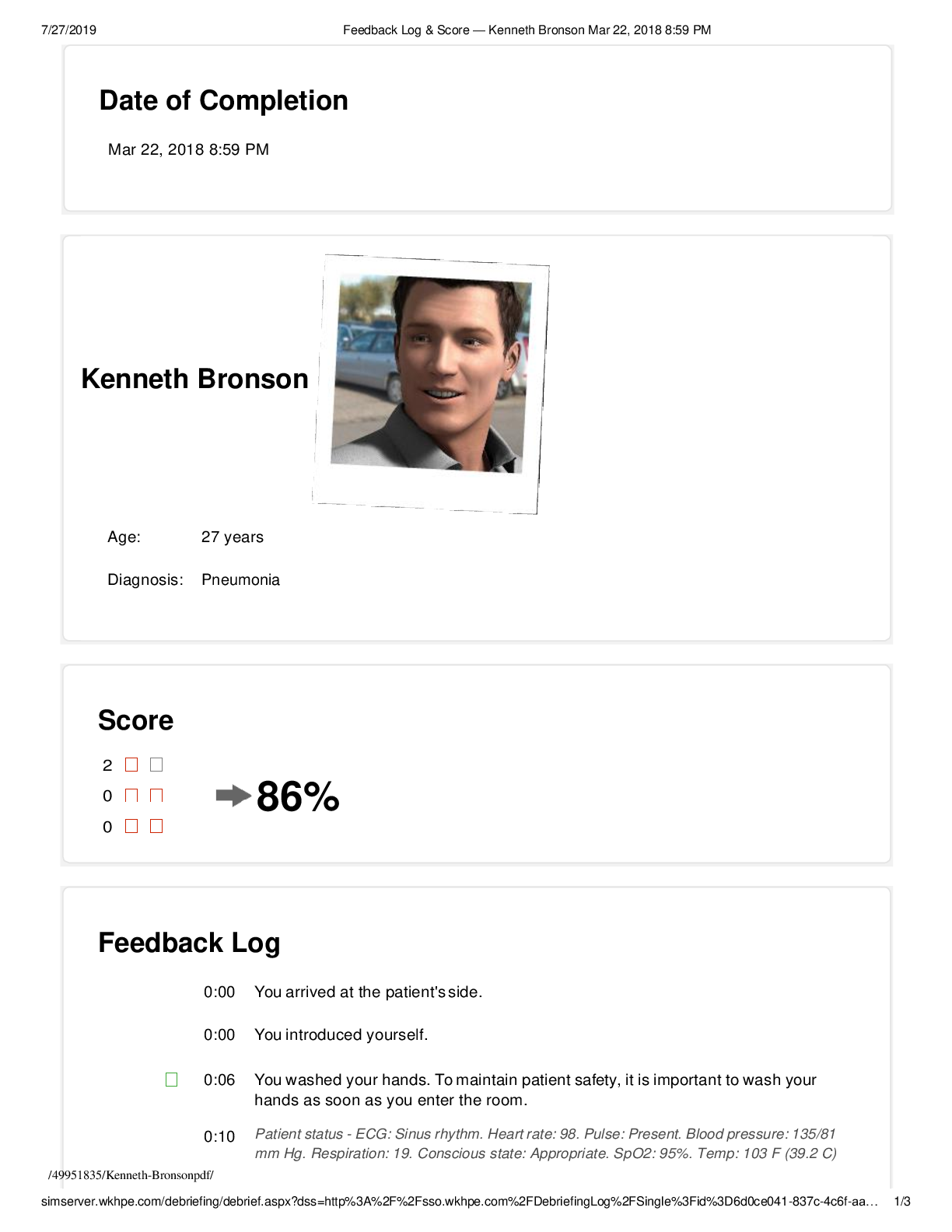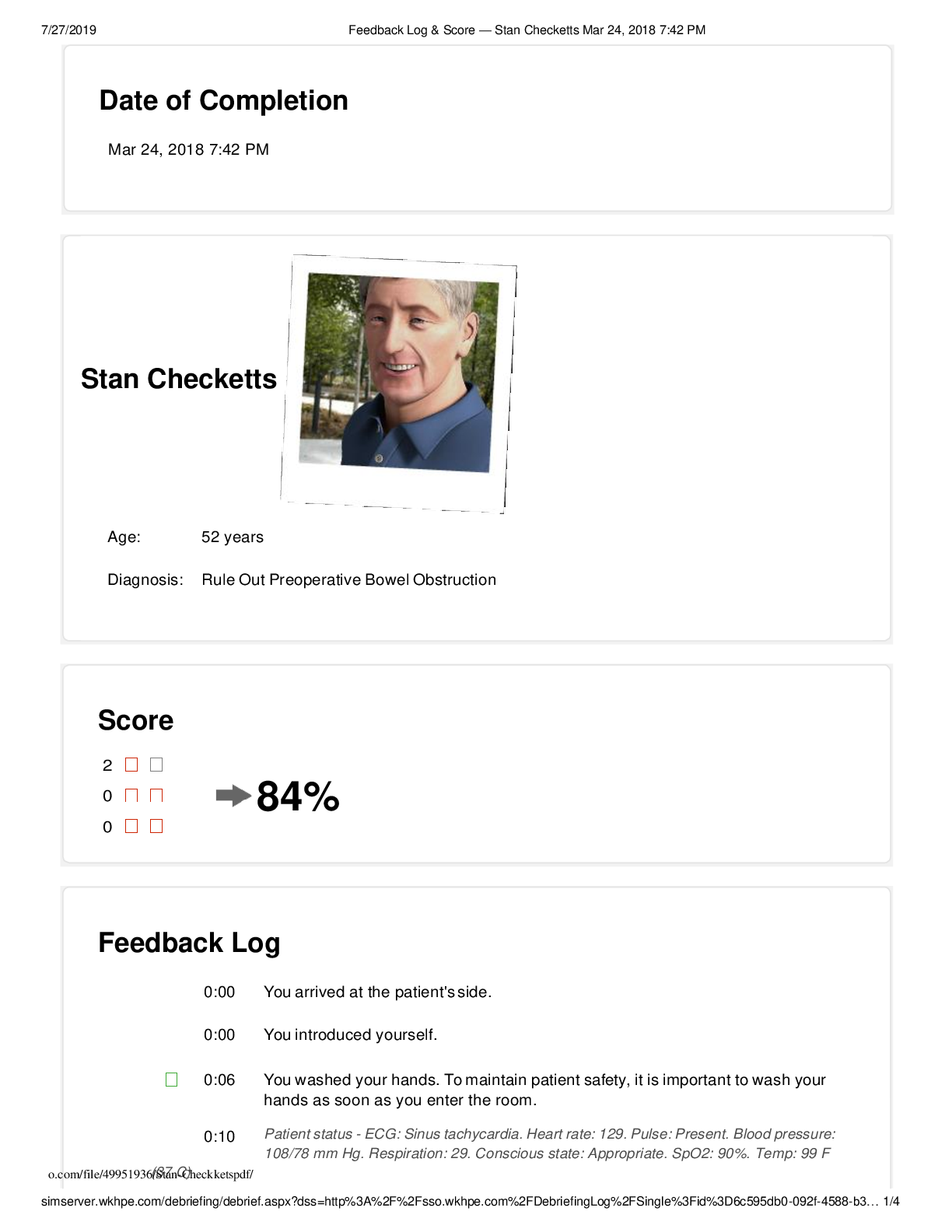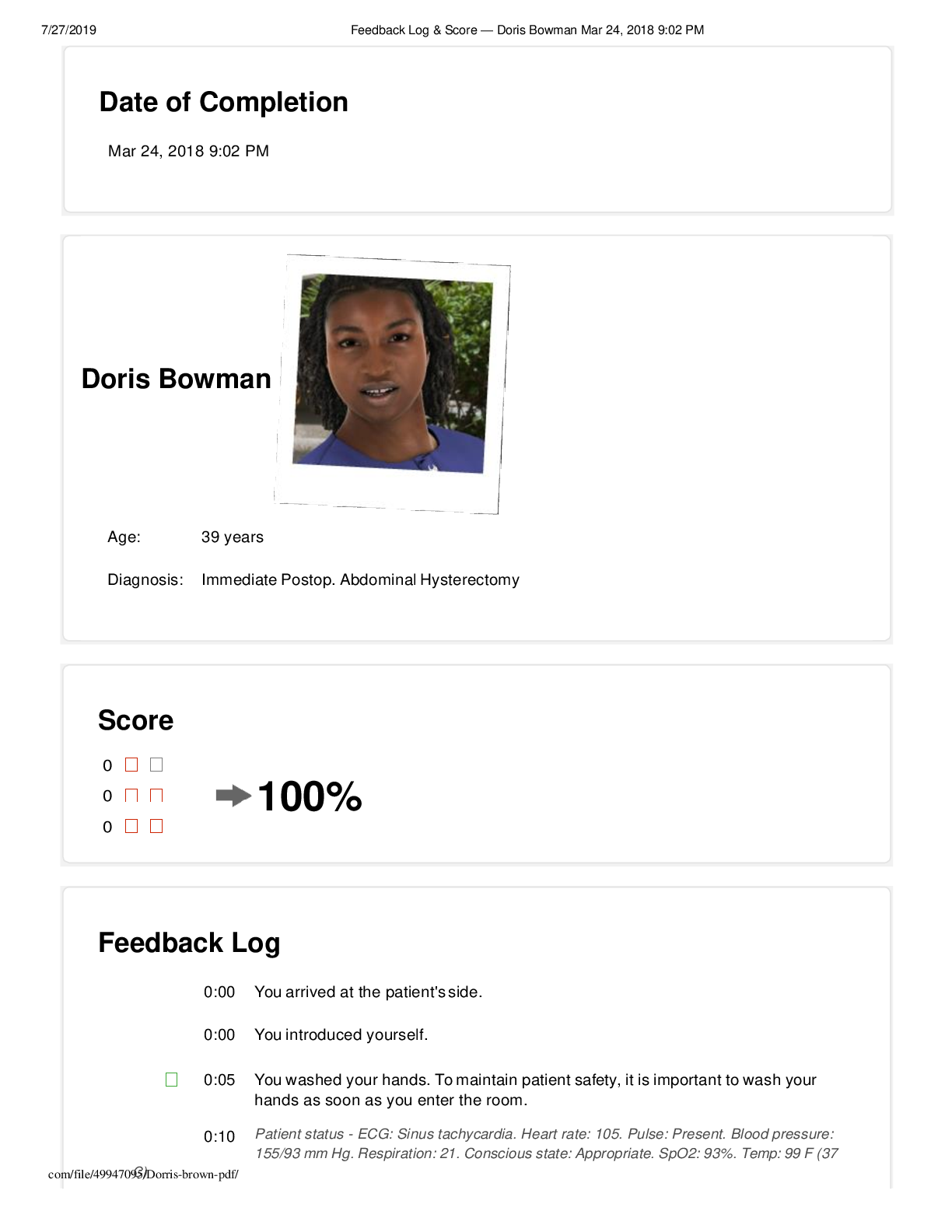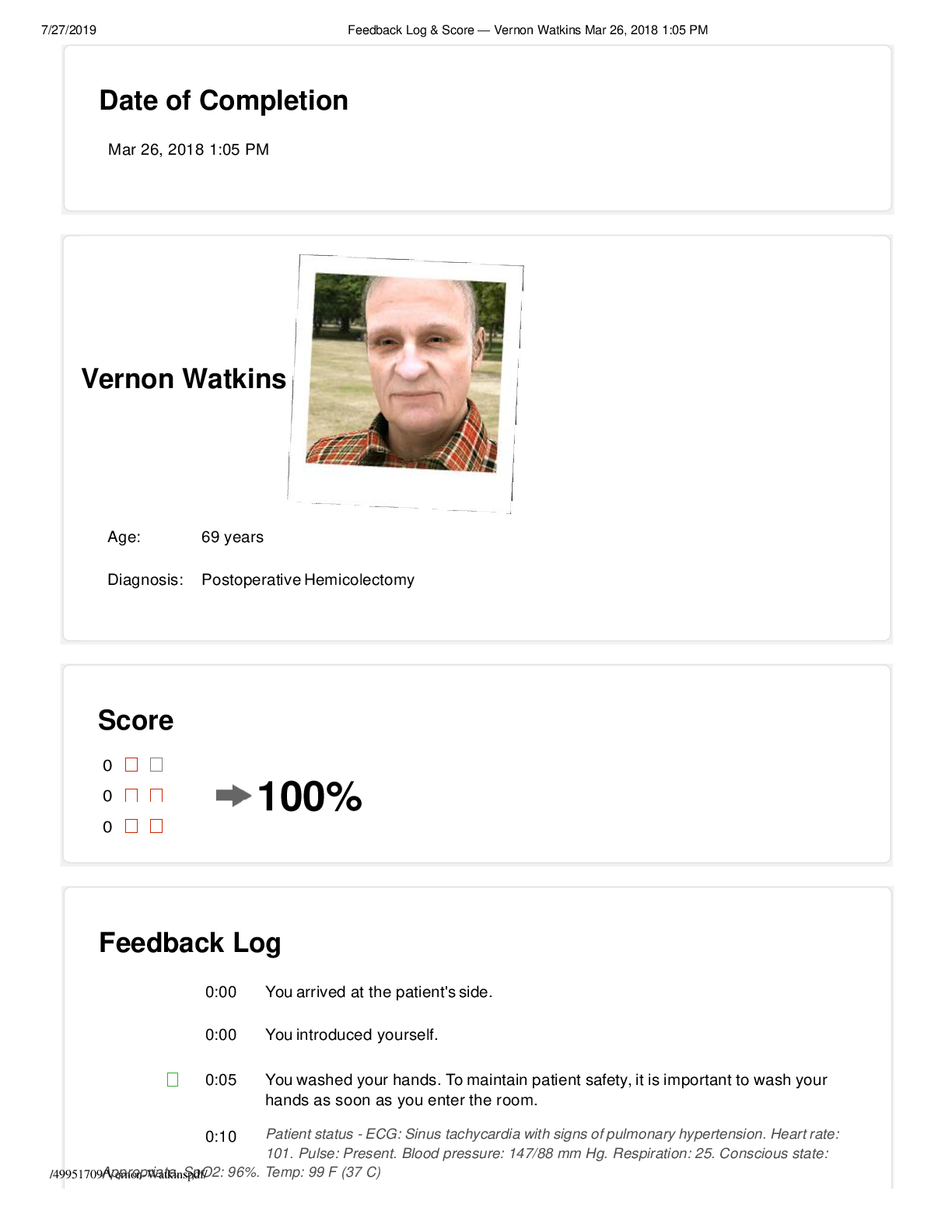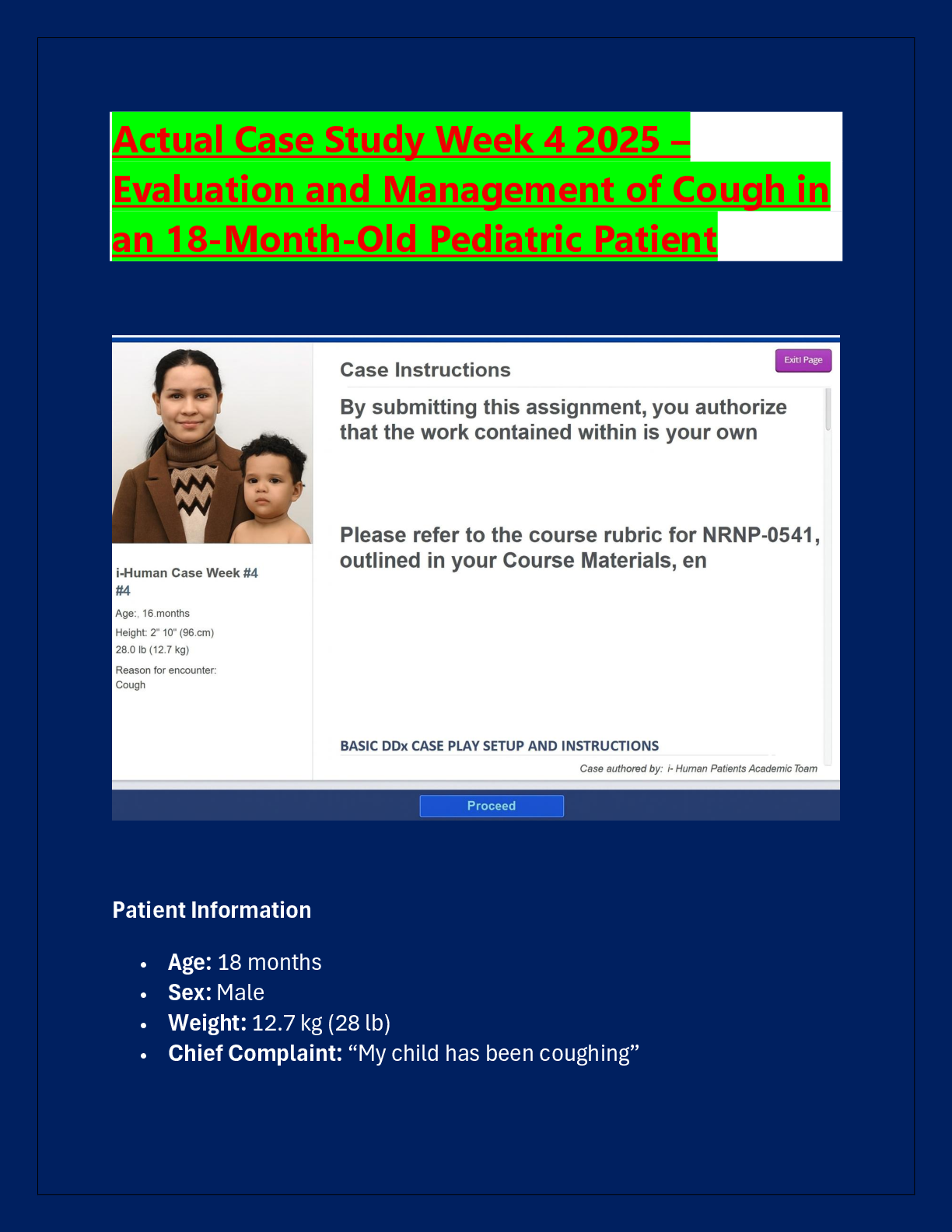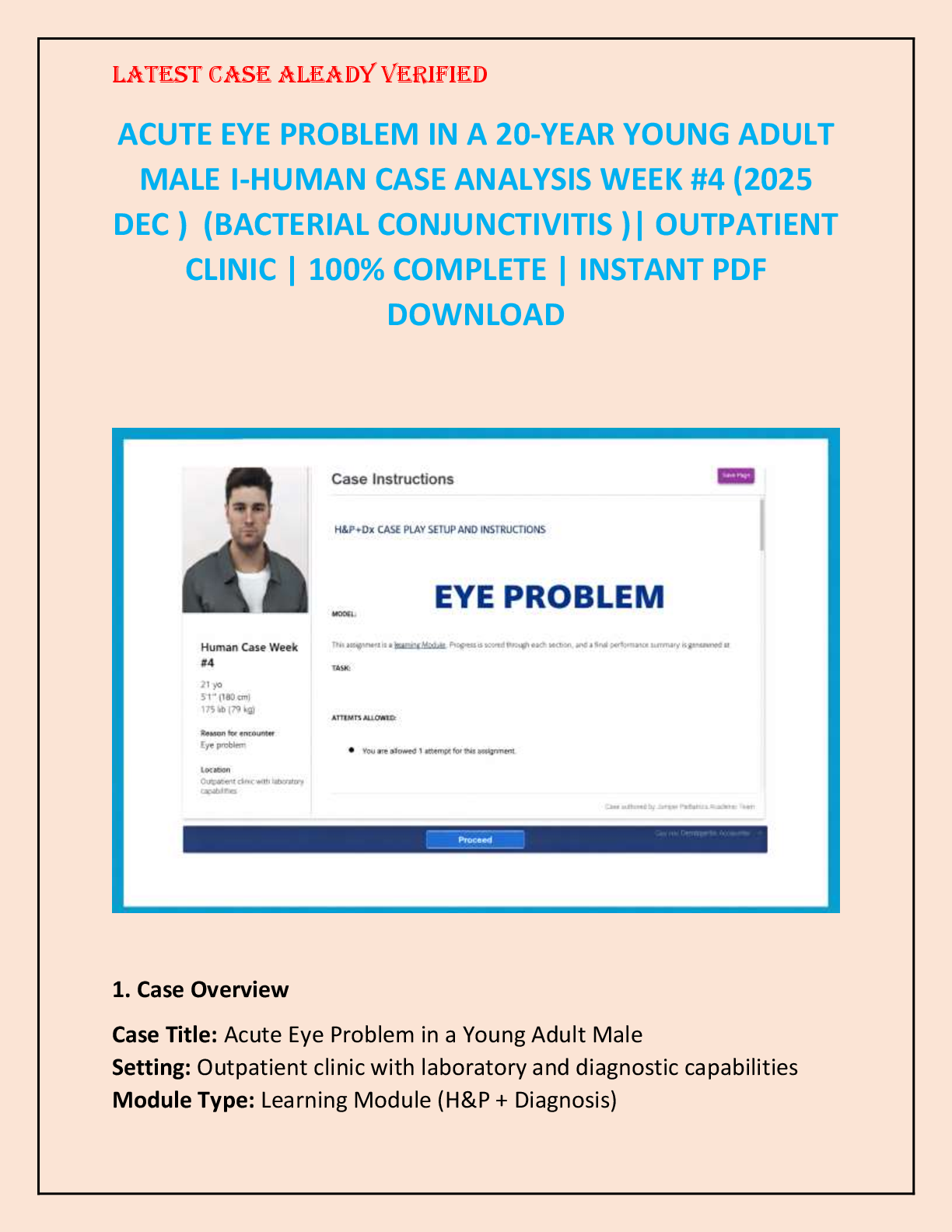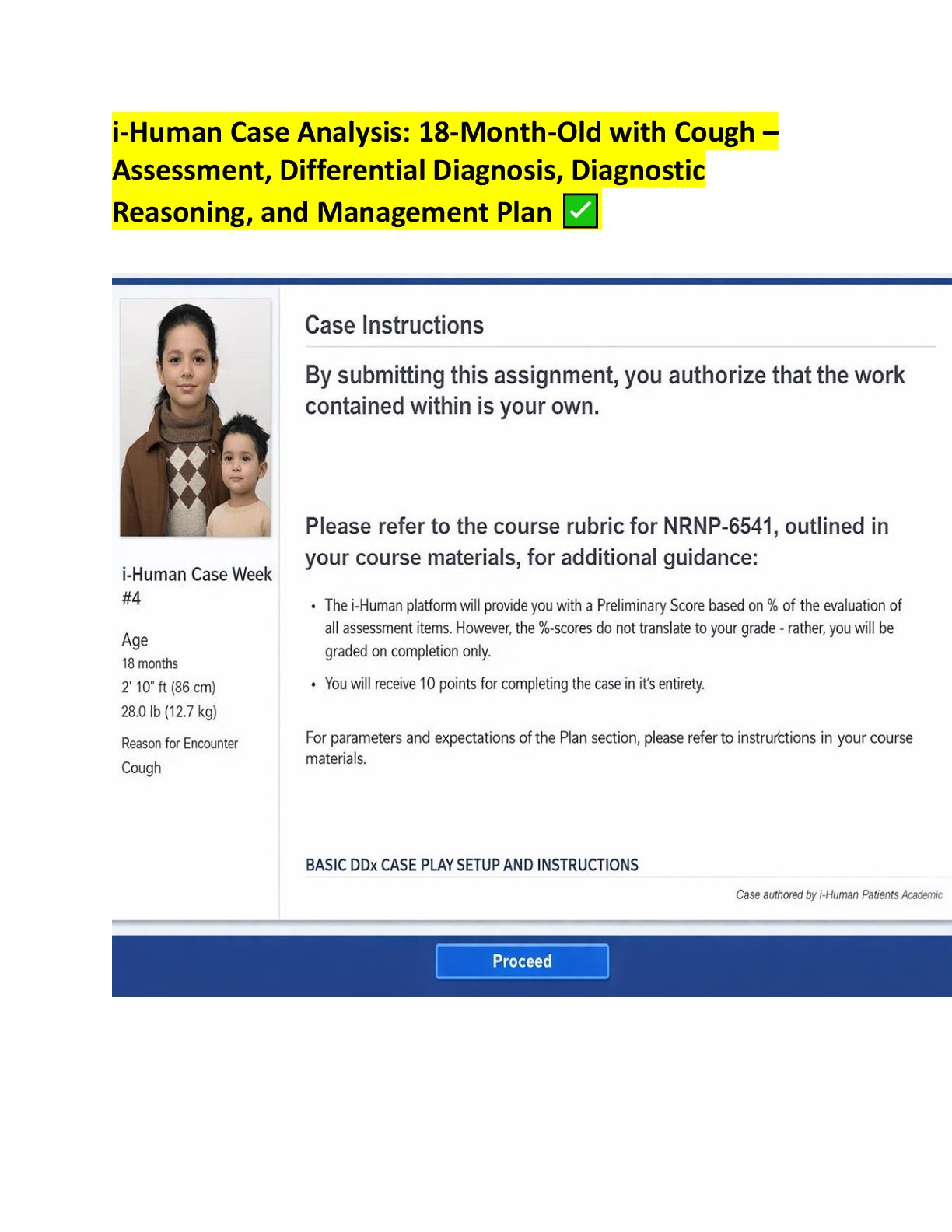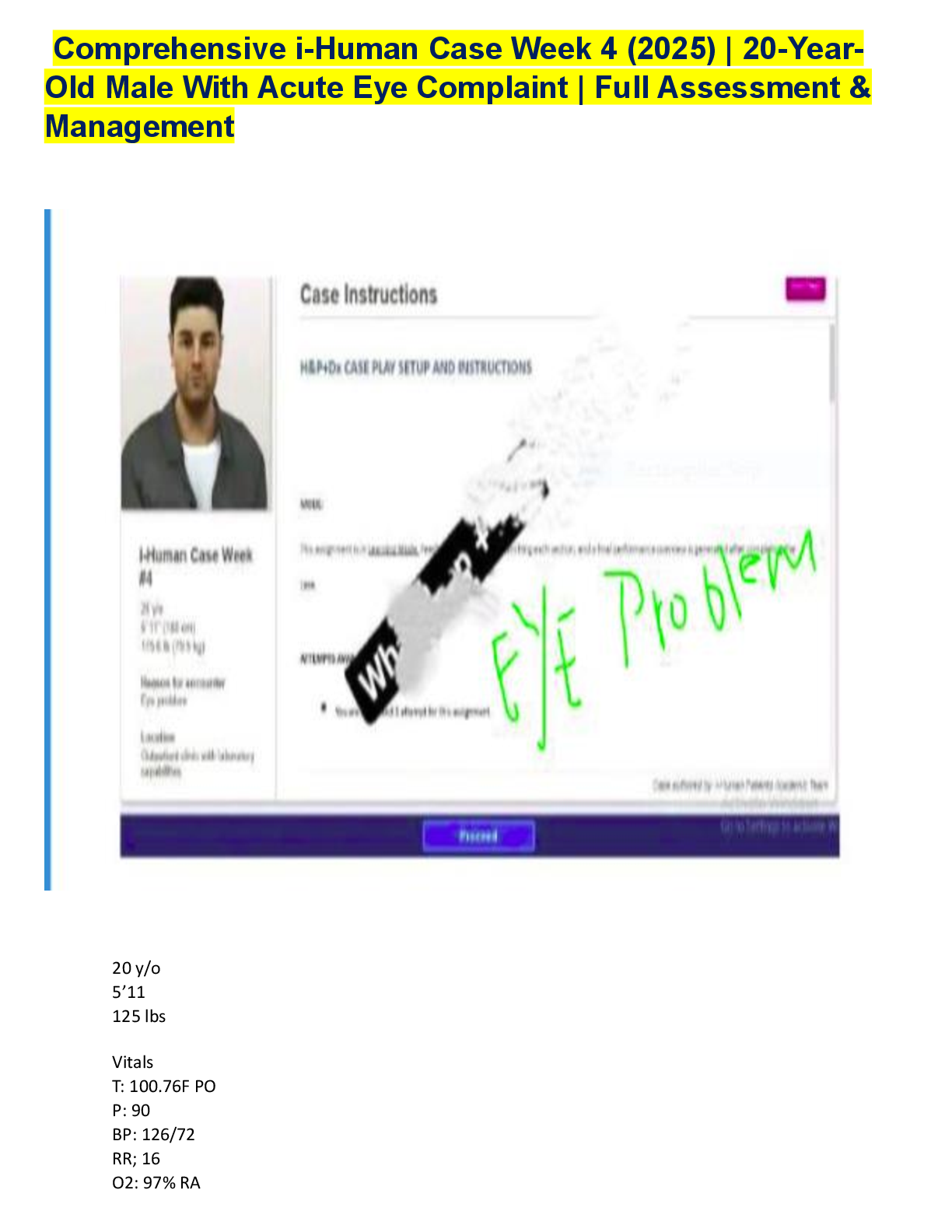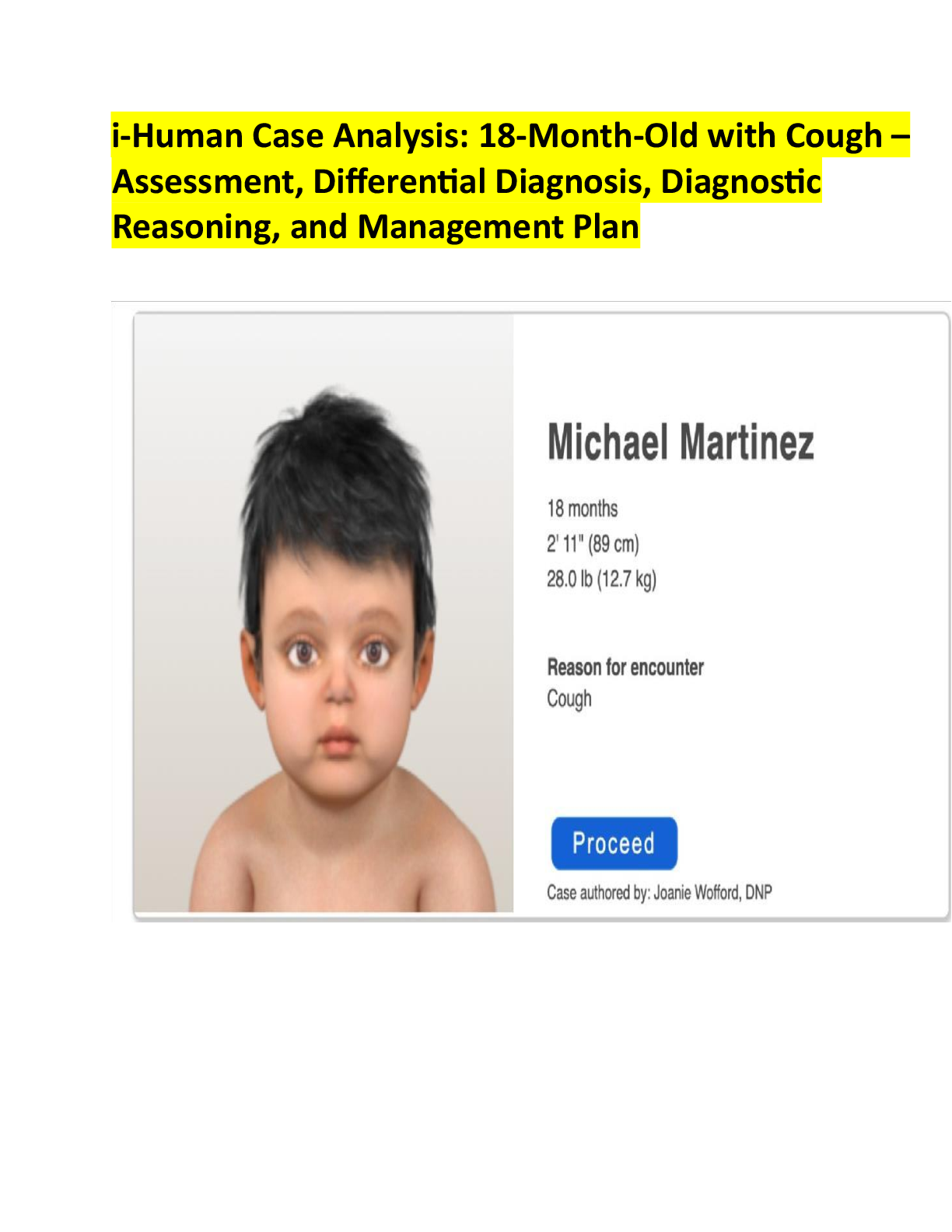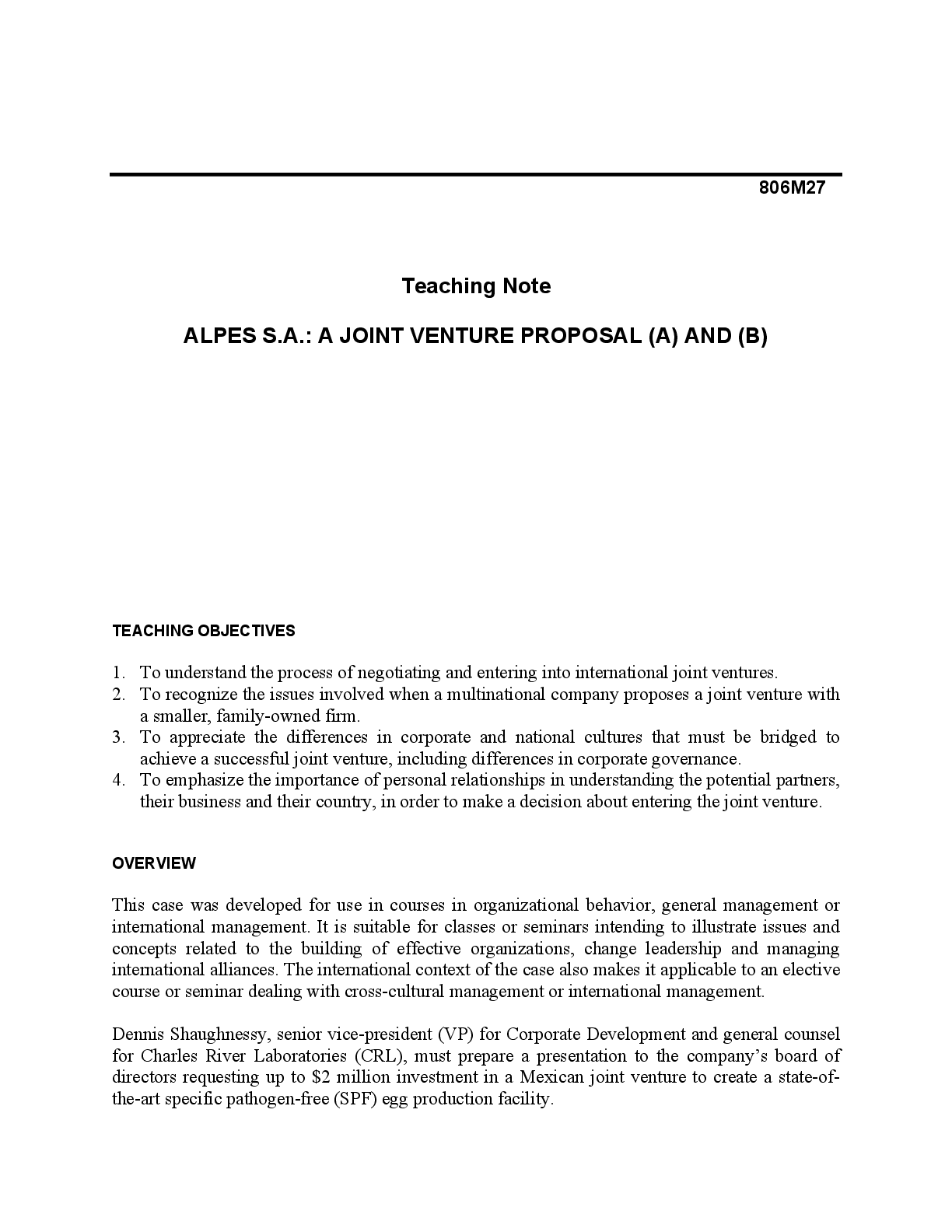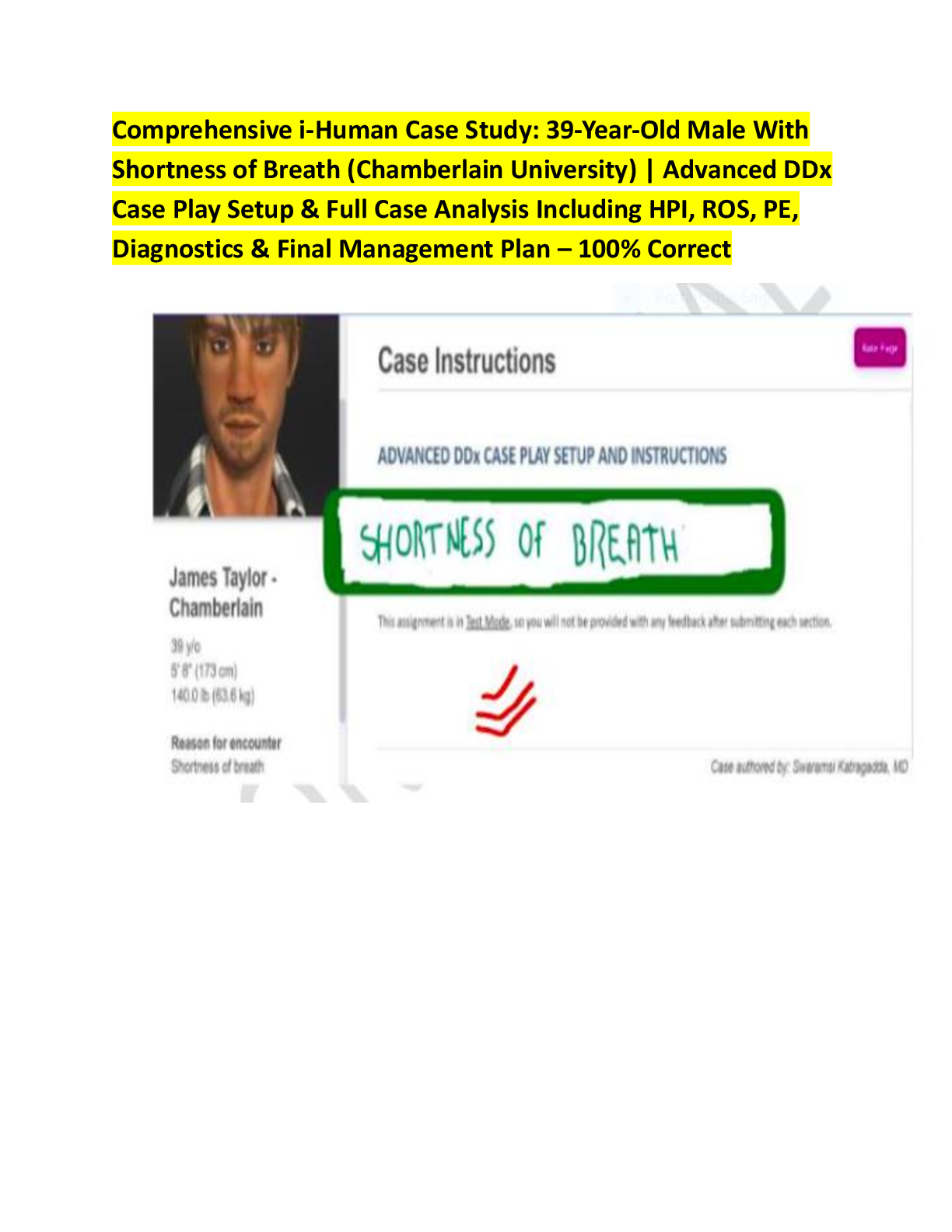Business > CASE STUDY > BMO0195: A report of 5,000 words in which you critically evaluate the people management practices of (All)
BMO0195: A report of 5,000 words in which you critically evaluate the people management practices of Pound-Co. Your report must have practical implications but should also rely on academic literature to support your arguments.
Document Content and Description Below
People management practices at Pound-Co Finance Background Pound-Co Finance is a successful finance company which has evolved over the last 10 years. It started in 2006 through the merger of 2 small ... er companies which were individually owned by separate entrepreneurs. The business operates in what is known as the non-standard market where it may charge higher rates but also takes more risks on the customers it lends to. Typically these customers will have a poor credit history, may have been bankrupt or have county court judgements against them and may be paid weekly or fortnightly. As a result of this however, the organisation was not overly affected by the credit crunch in 2008 as mainstream lenders were and the company has continued to grow since then. The company’s mission statement today reads as follows; Our mission is to be the leading specialist lender in our chosen markets, acting responsibly in all our relationships, and playing a positive role in the communities we serve. To support this mission the organisation has a set of values which are known as FRED; • Fair • Responsible • Environmentally conscious • Dedicated to providing excellent service The organisation understands its market, however limited this might appear. However, there is still uncertainty surrounding the economy and mainstream lenders unsure what the vote to leave the EU will bring. Pound-Co is in a good position as more and more people are turning to them as high street banks are reluctant to lend. The board of directors recently declared their objectives as; To have two million customers and make £20million profit in the next five years. Currently Pound-Co has approximately 1.6 million customers with a reported profit of £17 million in the last financial year so they have some ground to make up. The board of directors consists of the CEO, Finance Director, Director of Field Operations and Marketing and Sales Director. They recently stated that they would meet their objectives by concentrating on the markets they know and on the products they know work. The board acknowledged that they may need to invest in new technology and/or new personnel in order to achieve these objectives as many of the branch managers and financial advisors have been with the company since it started and are sometimes ‘stuck in their old ways’. The nature of the business The company deals in small scale loans from £500 to £5,000. There is a web site to generate interest but customers must call into a local branch to discuss the loan and sign all contracts. Depending on the size of the loan, the customer is given cash or money is paid into a bank account via a BACS payment. The customer has the option of setting up a monthly direct debit to repay the loan or can be given a payment book and allowed to pay in branch on a weekly, fortnightly or monthly basis. Organisational structure Pound-Co Finance employs approximately 80 staff at their Head Office in Huddersfield, which contains all central functions such as HR, Finance, H&S, Properties, Admin and so on. Outside of this there is a network of branches spread across the North of England, with central field offices known as Hubs, in Yorkshire, Lancashire and the North East. There is a Regional Operations Manager for each of these Hubs who directly reports to the Director of Field Operations, based in Huddersfield. Each of these Hubs is the field office for the local branches. As well as being the base for the Regional Operations Manager, there are admin staff, one generalist HR officer and one learning and development officer responsible for the branches within that Hub. The generalist HR officer deals with traditional HR activity such as sickness and absence, grievances, disciplinary hearings and health and safety issues. The learning and development officer runs induction sessions for new starters, rolls out central initiatives such as the recently launched candidate management system and any training sessions which are requested locally. Field based HR roles report to the Head of HR based in Huddersfield. Each branch is run by a Branch Manager with three or four financial advisors in each location. All employees are salaried but a target driven bonus scheme also operates for Regional Managers, Branch Managers and Financial Consultants. Working hours for Pound-Co Finance are 09:00 – 17:00, Monday – Friday for Head Office staff and Monday – Saturday for branch staff. Branch staff who work on a Saturday are given a day off in the week. Current Issues All employees are salaried with Senior Managers earning between £60,000 & £90,000 depending on number of years’ service and also receive bonus based on the performance of their Hub. Branch managers’ pay is between £28,000 & £35,000 depending on number of years’ service but they also qualify for a monthly bonus based on the performance of their branch in terms of sales and collections. Financial managers are paid a basic salary of £21,000 with individual bonuses paid in relation to sales and collections. Support staff such as HR and admin are paid average rates compared to benchmark salaries within the industry. There is a history of long service amongst branch managers and financial advisers. However, recently they feel the company is moving forward too quickly and changing direction to become more profit orientated rather than quasi philanthropic which the belief was in the early days. Helping customers to gain credit was seen as a ‘good thing to do’ as they couldn’t get help from other sources but now customers appear to be more of a commodity and pressure is on to refinance and extend loans so more profit can be made. Branch managers and financial advisers are also now targeted with bringing in new business each week and so must become more sales driven rather than simply processing repayments as customers come into the office or meeting new customers who had made an appointment. They are also now targeted for the amount of money they collect in repayments each week from existing loans and so more pressure is on them contacting customers and making collections. As a result, many financial advisers are leaving due to them not hitting their targets and therefore missing bonus. The basic salary is insufficient for them to live on. These high levels of attrition have led to an increased focus on recruitment and selection. Traditionally recruitment has been via word of mouth and advertisements in local papers, job centres and often supermarket notice boards. This generates interest but only seems to attract the same calibre of applicant who have a caring and professional nature but lack the sales and collection skills required to move the organisation towards its projected five year targets. Selection activity is coordinated centrally through a candidate management system which was launched six months ago. The HR officer in each Hub was trained on this new system and then rolled this training out to all existing branch managers. The HR officers reported this to be a success as everyone attended the training within the target completion date. The candidate management system involves head office staff and branch managers. Having passed an initial telephone interview with Head Office staff, applicants names are then passed to the respective Branch Manager who is geographically closest to the applicant. Branch Managers are then responsible for contacting the applicant and both arranging and conducting an interview. All of this was included in the training delivered by the HR Officer to the branch managers when the system was rolled out. This training was deemed to have been a success at the time. At a recent meeting of senior managers the central recruitment manager raised a concern that large numbers of applicants were contacting the central team as they hadn’t heard anything after they had passed their initial screening interview. The operations manager raised this point with the regional managers. It emerged that branch managers didn’t know how to operate the candidate management system from their end despite having attended the training. It also emerged that little effort had been made to learn how to use it because they didn’t feel comfortable in conducting interviews so using the system as an excuse meant they didn’t have to deal with arranging and conducting interviews. This has had a major effect in terms of Pound-Co Finance’s external brand image as many of these potential employees are gaining jobs with their competitors. A performance management programme exists in the company whereby annual appraisals are conducted across the whole organisation (by the end of July each year) and a personal development plan (PDP) is submitted to the Head Office HR team following these appraisals. During the appraisal the line manager is expected to rate each employee against the organisations core values (on a scale of one to five with one being exceptional and five being very poor). Line managers generally give average scores of two or three as they don’t want to upset the workforce especially as many employees are already leaving. A recent employee survey highlighted that this system causes much unrest as branch employees feel it is only a paper exercise and any development needs they highlight are never brought to fruition. The same survey highlighted that managers felt they didn’t have sufficient knowledge of the learning and development initiatives the company offered and they also felt they didn’t have skills to be able to coach and support employees at a local level. Crucially many responses to this employee survey indicated that financial advisers and branch managers felt their job role had changed and they now required more sales and collection skills. Despite mentioning this in their appraisal and adding it to their PDP, nothing materialised to address this need. The employee survey has been taken seriously by the board of directors. They know they may need to invest in new technology in order to grow their customer base but they are also beginning to realise that their people management practices haven’t changed since the two companies merged. However the world of work has changed quite considerably. They wonder if a change in the way they manage their people might result in a better and quicker performance shift towards the organisation’ stated objectives. Hence they have approached you as an independent HR consultant for advice. Your brief Your task is to write a report of 5,000 words in which you critically evaluate the people management practices of Pound-Co. Your report must have practical implications but should also rely on academic literature to support your arguments. A list of all references should be provided at the end of your report using the APA6th style of referencing. Specifically you should; • Provide an overview of the organisation in terms of industry, size, sector, history and any other relevant background information. (Approx 200 words). • Critically examine the notion of HRM as a strategic force at Pound-Co. Explain your answer with reference to models of HR which are used or could be used. (Approx 1,000 words). Make reference to models of HR which are used or could be used Discuss the nature of alignment between HR strategy and Organisational strategy • Critically evaluate the talent management practices which take place and consider the impact they have on achievement of the overall strategic goals of the organisation. Here you should consider; (Approx 3,000 words). Recruitment and selection, consider; How recruitment take place Whether this method aligns to the strategic objectives of the organisation Whether current selection methods are working Performance management, consider; The nature of performance management and especially appraisals The output from appraisal meetings Learning and development, consider; How learning needs are identified How training is evaluated Whether transfer of training occurs • Highlight your overall conclusions. (Approx 300 words). • Make recommendations based on your conclusions and provide suitable indications of cost and resource implications for any changes you suggest. (Approx 500 words). If you recommend change, consider how this will be implemented and what the impact will be on employees Remember though, a recommendation could also be that something stays the same! [Show More]
Last updated: 3 years ago
Preview 1 out of 22 pages

Buy this document to get the full access instantly
Instant Download Access after purchase
Buy NowInstant download
We Accept:

Reviews( 0 )
$9.00
Can't find what you want? Try our AI powered Search
Document information
Connected school, study & course
About the document
Uploaded On
Jul 07, 2020
Number of pages
22
Written in
All
Additional information
This document has been written for:
Uploaded
Jul 07, 2020
Downloads
0
Views
143


